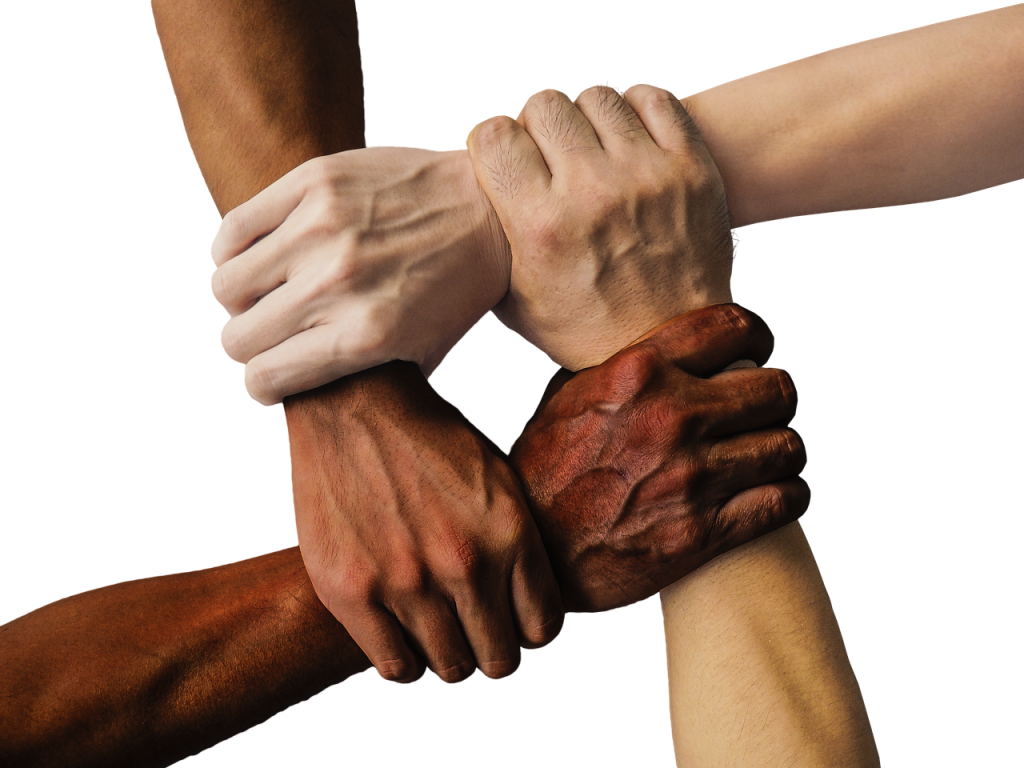
Introduction
The world today is more connected than ever before. We can communicate with anyone, anywhere, at any time. We can travel to the farthest corners of the globe in a matter of hours. We can share information and resources across borders and cultures. However, with this increased connectivity comes increased responsibility. It is up to us to use our connections to build a stronger international community through solidarity.
Solidarity is the idea that we are all in this together. It is the recognition that we share common goals and face common challenges, and that by working together, we can overcome them. Solidarity is not just a feel-good concept; it is essential for fostering peace, unity, and cooperation.
In this article, we will explore the benefits and challenges of solidarity and how we can work together to build a stronger global community.
The Benefits of Solidarity
When we come together in solidarity, we can achieve great things. Here are just a few of the benefits of building a stronger international community through solidarity:
- Peace: Solidarity promotes peace by fostering understanding, empathy, and cooperation. When we recognize that we are all part of the same human family, we are less likely to resort to violence to resolve our differences.
- Unity: Solidarity brings people together across borders and cultures. It helps us to see our similarities instead of our differences, and to work towards common goals.
- Cooperation: When we work together in solidarity, we can achieve more than we could on our own. We can pool our resources, share our knowledge and expertise, and support each other through difficult times.
- Progress: Solidarity is essential for making progress on global issues such as poverty, inequality, and climate change. These are complex problems that require global solutions, and solidarity is the key to achieving them.
The Challenges of Solidarity
While solidarity is a powerful concept, it is not without its challenges. Here are some of the obstacles that we may face when trying to build a stronger international community through solidarity:
- Cultural Differences: Different cultures may have different values, beliefs, and ways of doing things. This can make it difficult to find common ground and work towards shared goals.
- Language Barriers: Language barriers can make it difficult to communicate effectively and understand each other’s perspectives.
- Power Imbalances: Some countries or groups may have more power, resources, or influence than others. This can create inequalities that make it difficult to work together as equals.
- Self-Interest: People and countries may prioritize their own interests over the common good, which can make it difficult to work together towards shared goals.
How to Build a Stronger International Community through Solidarity
Despite the challenges, building a stronger international community through solidarity is possible. Here are some ways that we can work towards this goal:
1. Foster Understanding and Empathy
Solidarity begins with understanding and empathy. We need to take the time to learn about other cultures, perspectives, and experiences.
We need to listen to each other, acknowledge our differences, and find common ground. This requires an open mind and a willingness to be vulnerable and learn from each other.
2. Communicate Effectively
Communication is essential for building solidarity. We need to find ways to bridge language barriers and communicate effectively with each other. This may involve using translators, learning new languages, or using visual aids to convey messages. We also need to be mindful of cultural differences in communication styles and adapt our approach accordingly.
3. Address Power Imbalances
Power imbalances can be a major obstacle to building solidarity. We need to work towards greater equality and address systemic injustices that create inequalities. This may involve redistributing resources, addressing historical injustices, and empowering marginalized groups.
4. Collaborate towards Common Goals
Collaboration is essential for building solidarity. We need to find ways to work together towards common goals, such as addressing poverty, inequality, and climate change. This may involve forming partnerships, sharing resources, and pooling our knowledge and expertise.
5. Practice Solidarity in our Daily Lives
Solidarity is not just a global concept; it begins with our daily actions. We need to practice solidarity in our personal lives, by supporting our friends, families, and communities. We also need to support local and international organizations that promote solidarity and work towards a more just and equitable world.
Conclusion
Building a stronger international community through solidarity is crucial for fostering peace, unity, and cooperation. While there are challenges to overcome, such as cultural differences, language barriers, power imbalances, and self-interest, there are also ways to work towards greater solidarity, such as fostering understanding and empathy, communicating effectively, addressing power imbalances, collaborating towards common goals, and practicing solidarity in our daily lives.
By working together in solidarity, we can build a better world for ourselves and future generations. Let’s embrace the power of solidarity and work towards a stronger, more just, and more equitable global community.
